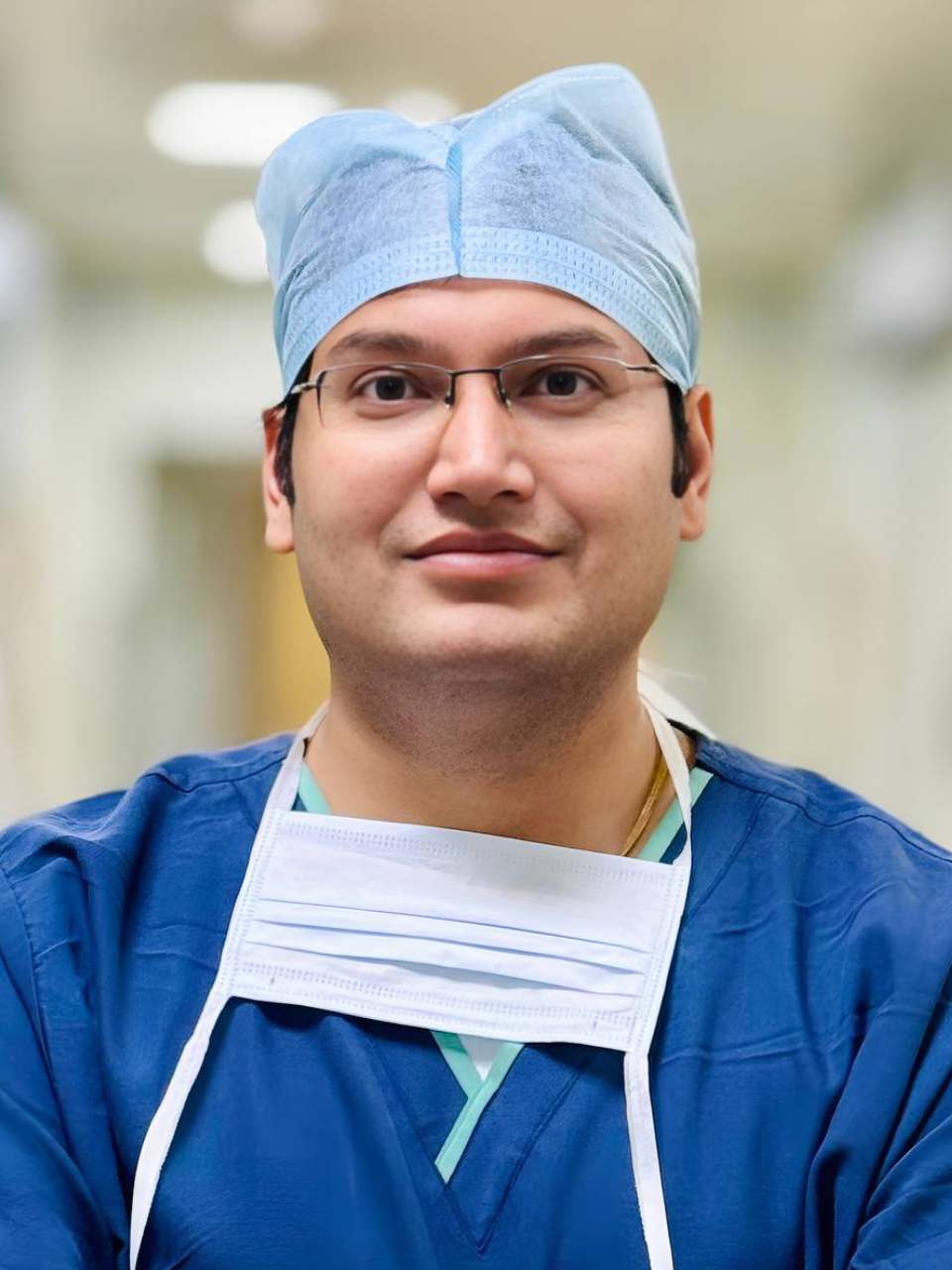Kidney Cancer
Kidney cancer or Renal Cell Cancer (RCC) is a type of cancer that originates in the small tubules present in the kidney. It can give rise to symptoms such as bleeding in urine (hematuria), pain in abdominal region, especially in the flanks and weight loss with loss of appetite. However, most kidney tumors are now discovered as a result of an ultrasound or CT scan done for some other non -specific complaint. This is called “incidental detection or diagnosis” in medical jargon and is a very commonly seen today.
Kidney cancers are typically quite resistant to treatment by radiation therapy and the mainstay of treatment for this potentially lethal tumor is surgery. Surgery for kidney cancer is essentially of two types:

- Radical nephrectomy (Complete removal of the kidney with the tumor)
- Partial nephrectomy (Removal of the tumor alone while leaving the rest of the kidney behind)
Radical nephrectomy, which involves the complete removal of the kidney, is the mainstay of treatment for cancers, which are large in size (>7 cm in largest dimension) or involve the central area of the kidney. Central tumors may be close to the major blood vessels (renal artery and renal vein) that bring and remove blood from the kidney and may make it impossible to remove the tumor completely by partial nephrectomy while retaining the blood supply to the rest of the kidney. Radical nephrectomy can be done via open surgery or minimally invasive surgical techniques (laparoscopic or robotic). Laparoscopic or robotic radical nephrectomy provides the patient with a similar chance of complete cure after surgery as compared to open surgery while providing him/her all the benefits of minimally invasive surgery including lesser pain, faster recovery and early discharge from the hospital.
The prostate is a small organ present only in males. Only men develop prostate cancer. The prostate is normally about 3 cm long (slightly more than 1 inch) and lies below the urinary bladder and in front of the rectum. The prostate surrounds the urethra, the tube that carries sperm and urine out of the penis. It produces a thin, milky fluid that is added to the sperm at the time of ejaculation. Older men often have an enlarged prostate, which is a noncancerous condition called benign prostatic hyperplasia (BPH) that causes urinary symptoms such as frequency and poor flow. Cancer occurs when normal cells undergo a transformation in which they grow and multiply without normal controls.
Partial nephrectomy, on the other hand, represents a significant advancement in the treatment of small kidney cancers. Almost all the kidney tumors less than 4 cm and selected tumors between 4 and 7 cm in size are most appropriately treated by removal of the tumor itself, while leaving the remaining normal part of the kidney behind. This has significant advantages as compared to taking out the whole kidney:
- It enables the preservation of maximum kidney function
- It significantly decreases the chances of kidney failure (chronic renal failure) and the future possibility of needing dialysis
- It decreases the chances of developing secondary medical problems due to decreased kidney function including high blood pressure, heart attacks and brain stroke
- It has now been proven in research that due to the above factors, patients undergoing partial nephrectomy for small tumors live longer than those who undergo radical nephrectomy.
Partial nephrectomy is ideally suited for robotic surgery. Removing the kidney tumor from the surrounding normal area and reconstructing the remnant kidney is a complex task that requires exceptional dexterity, experience and training. This can be achieved with relative ease by a skilled urological cancer surgeon with experience and training in the use of robotic technology. Robotic partial nephrectomy enables fine reconstruction of the kidney thereby decreasing the chances of complications pertaining to bleeding or urine leakage from the kidney. It also provides the benefits of minimally invasive surgery common to all laparoscopic and robotic approaches.
Other treatment for kidney cancer that has not spread outside the kidney includes cryotherapy (freezing) and radiofrequency ablation (heating). However, both these treatments result in a higher chance of the disease coming back (recurrence) as compared to surgery and are thus usually reserved for patients who are not fit to undergo surgery because of other serious medical problems.
Why Choose Dr. Amit Aggarwal for Kidney Cancer?
Dr. Aggarwal is a leading uro-oncologist with training in uro-oncology and robotic surgery from the best institutes of India and the US. With years of experience and a reputation for compassionate care, Dr Aggarwal offers advanced diagnostic tools and treatments to help men achieve their goal of victory over the cancer. Whether through, medical treatments, or surgery, Dr Aggarwal works closely with each patient to offer customized solutions and support throughout their cancer treatment journey.
Don’t let fear of cancer treatment stand in your way. Contact Dr Amit Aggarwal today to discuss your symptoms and explore the best treatment options for you.





